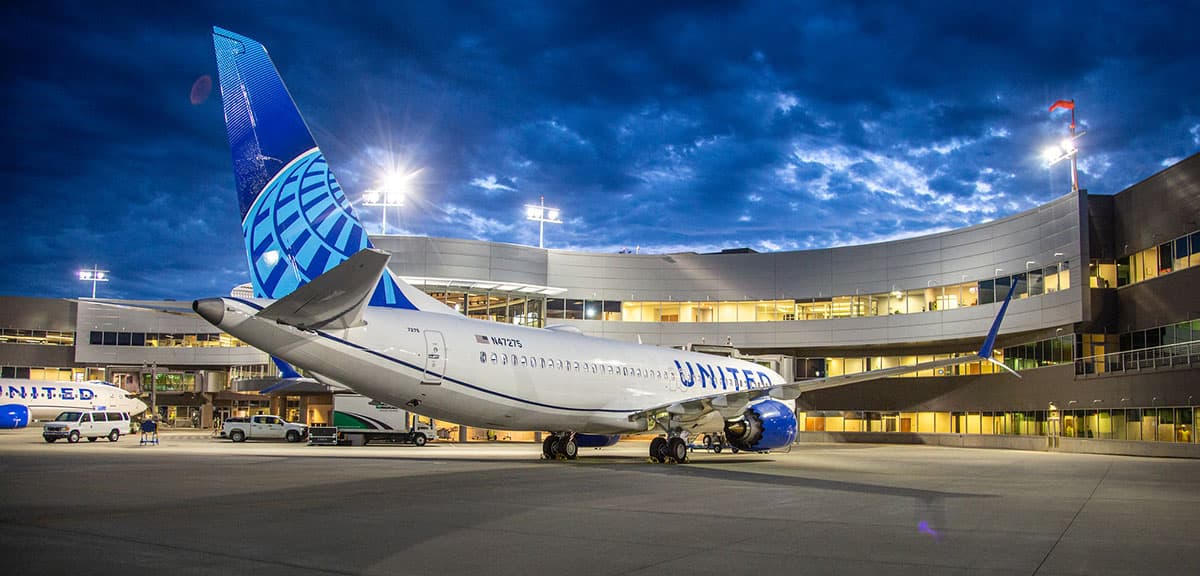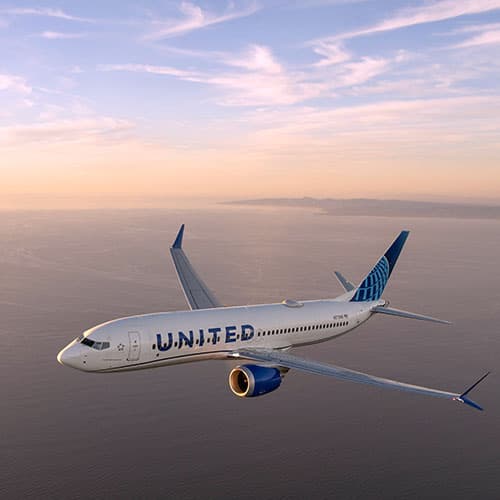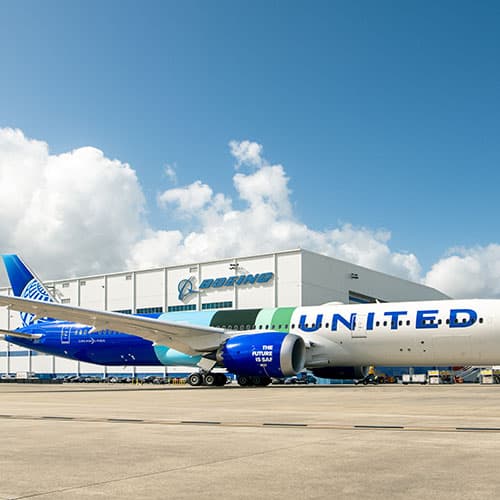
United is taking action to help tackle some of the most pressing challenges in the aviation industry, including the direct threat that climate change poses to our business. Sustainability is embedded in our business strategy and continues to be a top priority. Our leadership sets us apart and our proactive approach not only benefits our customers and employees, but also delivers value to our shareholders.
Key Highlights
A-CDP climate score
Most InnovativeNamed a winner of Fast Company’s World Changing Ideas Award and Time’s 100 Most Influential Companies
1stairline to use a SAF blend at ORD

Lauren RileyChief Sustainability Officer
United’s efforts to increase the availability and use of SAF plays an important role in improving energy security and sustainability in aviation. In 2024, we were the first airline to use a blend of SAF at Chicago’s ORD, while increasing its use across all of our operations. We also expanded participation in United Airlines Ventures Sustainable Flight FundSM and the SAF Coalition, both of which reinforce our commitment to differentiating United and advancing aviation for the future.

Footnotes
- In this report, “traditional carbon offsets” refer to carbon credits generated through the avoidance and/or reduction of CO2 emissions that would have otherwise occurred outside a company’s value chain. Traditional carbon offsets do not include certificates conveying the attributes of renewable energy or sustainable aviation fuel, or credits related to the removal of CO2 from the atmosphere.





